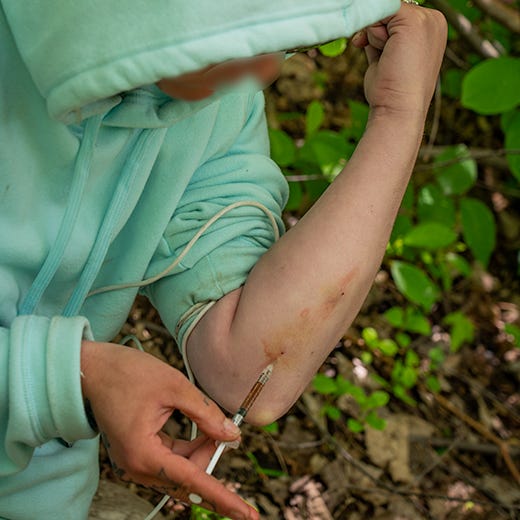Extracted from the poppy plant, smoked or eaten, opium can be an addictive drug; it can also be, as it has been for at least 8,000 years, a savior for those in pain. More recently opium has been largely replaced by synthetic narcotics including Oxycontin and Fentanyl, which are exponentially more powerful and potentially more addicting. Yet despite humans’ long history of opiate use, no one can predict who will, among those who seek relief or pleasure, become addicted.
The young woman here was living rough beside Lake Champlain. She was smart, resourceful, and aware of the risks of shooting up, especially given that the street drugs she used often contained Xylazine, a pharmaceutical that when improperly injected can produce abscesses leading to amputations. She kept a clean appearance by stealing clothes from a mall and earned money through prostitution and other strategies. The skills it took for her to maintain her habit and lifestyle were impressively adaptive and well thought-out within the tight impositions and restrictions her addiction incurred.
After she shot up, we walked for a while. She turned down my offers for lunch from a food truck we passed or a ride to an appointment she had that afternoon to try to secure housing. But she accepted an ice cream cone. We sat looking out over the sparkling lake as expensively garbed runners and bicyclists on multi-thousand dollar bikes sped by. And when we finished our cones, we continued on our very separate ways.








Thank you, my friend, for going way beyond the headlines to bring forth the person involved. Your courage to look more deeply than I might is inspiring.
Terry, you dive into worlds too many of us shy away from, then freely share the depth of your perceptions there. You gave more than an ice-cream, and the reverberations of your non-judgement and egoless opening there push us all to remember to be kinder and gentler every moment. Opiates do not discriminate. We need reminders not to.